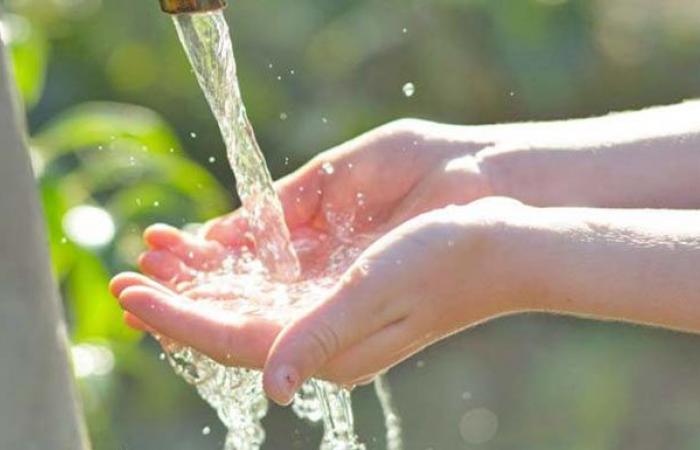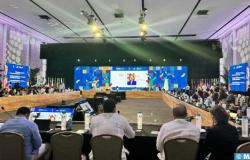Like many other countries, Morocco is suffering from water stress after six consecutive years of drought, an unprecedented situation in the country’s contemporary history. The filling rate of dams has not exceeded 25%, and groundwater levels have fallen, affecting per capita water availability. The latter has reached around 600 m³, four times less than the quantity available to each citizen 60 years ago. This reality stems from the obvious effects of climate change which has altered the seasons in several African countries.
To guarantee the future of this strategic resource, His Majesty King Mohammed VI, in his last Speech from the Throne, expressed the conscience of the Moroccan State in the face of the strategic challenge represented by water stress and the water resources crisis. The subject of water occupied more than 80% of the entire Royal Speech, a very significant percentage for a speech generally devoted to exposing achievements and providing guidance to institutions and policies. HM the King stressed that meeting this challenge requires more “efforts, vigilance, creative solutions and good governance in management. »
It is in this spirit, and with the conviction that the water crisis in Morocco requires the mobilization of all stakeholders that the National Public Policy Space, in partnership with the Moroccan Center for Studies and Research in Rights of man and in the media, recently organized a round table entitled “Water policy in Morocco: challenges and choices”.
Among the participants were Dr. Mokhtar Tebitbi, vice-dean of the Faculty of Legal, Economic and Social Sciences of Aïn Sebaâ; Dr. Hamid Naïmi, president of the National Public Policy Space; Rachida El Mrabet, doctor in environmental biology and professor at Hassan II University; Oumeima El Fan, researcher specializing in environmental engineering and sustainable development; Dr. Taher Chaker, engineer, expert and political actor; Mbark Afkouh, member of the Regional Human Rights Committee of the Casablanca-Settat region; Ashraf Hakim, specialist in environmental engineering; as well as doctors Jamal Fekri and Ali Karimi.
Among other questions raised during this meeting: what are the manifestations and scale of the water crisis and its effects? Are the causes of the crisis solely linked to natural and environmental factors, such as climate and drought, or are there other factors linked to the governance and management of this vital resource? What is the outcome of the dam policy adopted by Morocco since the 1970s? What role do the media and civil society organizations play in managing the water crisis in Morocco? …..
Dr. Mokhtar Tabitabi, moderator of this round table, opened the meeting by explaining the general context of the rarity of what he called “blue gold” (water), which he does not consider only as a natural shortage, but also as blatant mismanagement, disconnected from the expectations of Moroccan citizens. He then gave the floor to Rachida El Mrabet, who underlined the importance of scientific research in the face of this water crisis marked by scarcity and stress, exacerbated by the geographical position of Morocco, the rise in temperatures and changing precipitation patterns. She also spoke of the need to review agricultural choices and manage water resources using artificial intelligence, while resorting to the desalination of sea water to overcome the lack of water in the country. .
Mbark Afkouh addressed the legal bases of the right to water, referring to articles 11 and 12 which enshrine the rights set out in the International Covenant on Civil and Political Rights, as well as the 52 recommendations of the National Human Rights Council about this. He also insisted on the need to correctly implement public policies to clarify directions and meet expectations.
For her part, Oumeima El Fan stressed the importance of understanding the problem as a whole, given that Morocco experiences an arid climate, low precipitation and high temperatures. She questioned the nature of the crisis: is it a crisis of natural resources, a structural crisis or a crisis of governance and management? It also called into question the capacity of the 22 billion cubic meters of water to cover needs, as was the case in the 1950s and 1970s, when the rate of urbanization reached 67%, requiring resources water adapted to this growing urbanization.
Dr. Hamid Naïmi presented a series of thoughts on the water crisis in Morocco, emphasizing that the country has recorded, in recent years, a series of alarming indicators concerning water resources. He insisted on the fact that current public policies, even if they have helped to alleviate the severity of the crisis, remain insufficient, especially since infrastructure is not capable of meeting the growing water needs of the population. drinkable. He also spoke of the importance of diversifying water sources, particularly through desalination and the use of new technologies for the management of water resources, while warning of the social and economic consequences that would arise from poor management of the water crisis.
Ashraf Hakim’s speech focused on the need to raise awareness among younger generations about water issues. He called for the inclusion of environmental issues and water resources management in educational programs, in order to train citizens aware of environmental challenges and capable of contributing to the preservation of natural resources. He also discussed the importance of research and innovation in sustainable water management, citing several international examples of countries that have managed to overcome the scarcity of water resources through the use of modern technologies.
Abdelhadi Bekour






